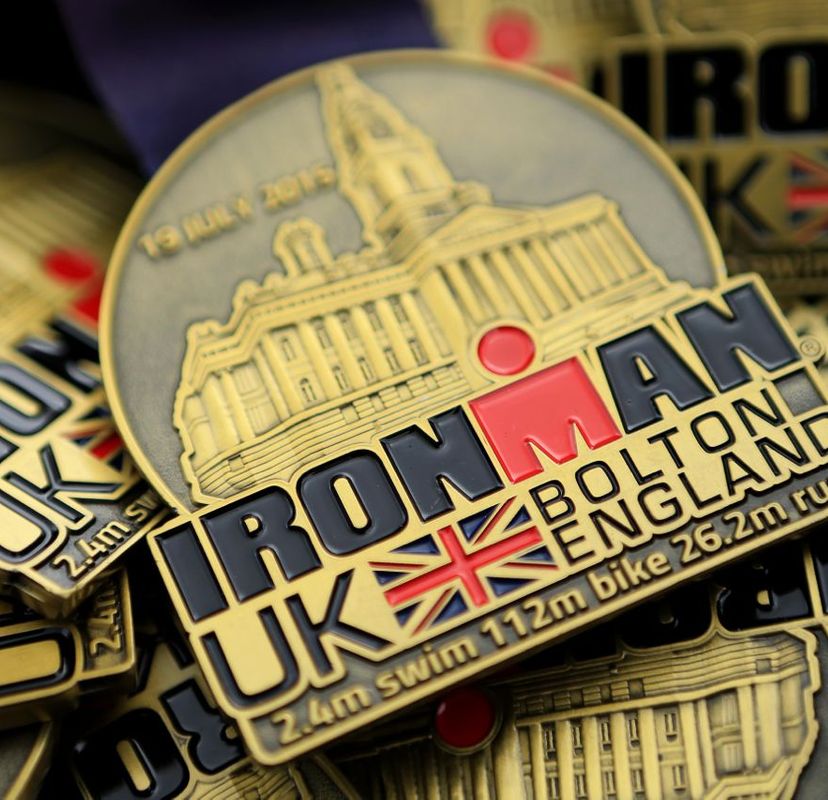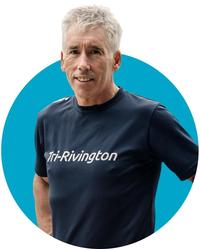
Everything You Want to Know About Ironman but Were Afraid to Ask
October 1st, 2017
The physical challenges
Consistency is the first magic bullet
If you have some base fitness you might get away at being inconsistent and be able to complete an Ironman. However, if you want to complete the event feeling you have achieved your best then consistency is the key.
What does consistency look like?
It means having key sessions that you will do each week. For example – Long Sunday base cycles and if the weather’s too dangerous a turbo/watt session. Monday swim session, Tuesday effort run session, Thursday threshold turbo session with a brick run. It is better to have two or three key sessions which you do each week with the odd exception rather than five or six sessions a week for three weeks and then nothing for three or more weeks.
Having a training plan that fits you is the second magic bullet
This will help you fully achieve consistency and keep you focused on your ultimate goal. Your plan should be based around your commitment to your family, work and friends and shared with those close to you. The plan should contain key elements:
What time would you like to complete the Ironman in? Break this down with the times for your swim, bike and ride with transition added in.
What are your strengths and more importantly your weaknesses? This means that your plan should focus on improving the discipline you are weakest at, while at the same time improving your strengths further.
How much time can you realistically set aside to train consistently throughout the autumn and winter months? Long hours training does not always mean better and in some cases when you have limited time you become very focused on making every training session count with no dead miles.
What B and C events are you going to include in your plan? For example you may enter a number of cross country running events in the winter, a couple of duathlons in the spring, a half marathon, an early season olympic triathlon and a half Ironman distance triathlon six weeks before the Ironman.
Knowing when to go hard and when to ease off is the third magic bullet
Better known as being in the right zones which is very individual and can be calculated for cycling by using a heart monitor and doing a Threshold Bike Test. With your zones for running use you heart monitor and complete a 10km run as fast as you can with mates of similar speed but remember to warm up and warm down properly. Once you know your maximum heart rate you can then calculate your zones.
Briefly – Over your week of training in the autumn and winter months you should be spending 75%-80% of your training in zones 1 and 2 with 20% in zones 4 and 5. The common mistake a lot of athletes make is that they don’t train slow enough when they should and they don’t train hard enough when they should; more often than not, they train in zone 3 which feels great but has less impact on improving your fitness for Ironman.
It is only in Zone 1 and 2 training that you will be able to increase your aerobic endurance by increasing your mitochondria density and size which will result in a better oxygen transportation system for your body. I call these zones the Talking Pace zones and they are done with sessions that last for at least 1.5 hours and can be done on your long run or cycle.
Zone 4 and 5 training should never be longer than an hour and often around fifty minutes with short recovery built into the session. These sessions might be a watt bike/turbo session or a hill run rep session. These are what I call eye balls out sessions and if done correctly mean you would not be able to talk while doing them. However, a word of caution – You must ensure you have done a good warm up, whether it’s a 10 min watt bike warm up or a 10 minute easy run warm up with drills.
Briefly – The benefit of zone 4 and 5 sessions is that you will see an increase in your zone 2 long running and cycling pace without the increase in your heart rate.
Recovery is the fourth magic bullet
Without recovery you will not improve your fitness no matter how many times you train in the week. In fact, you may see your fitness level fall, as well as your motivation. These are my key elements to recovery.
Recovery drink immediately after a training sessions
Whenever you finish a training session get into the habit of having a good recovery drink within twenty minutes. This can be a mug of semi skimmed milk with a banana or any of the products on the market. This habit will ensure that your muscles get the helping hand they need to speed up their recovery. It will also prevent that sugar dip the next day and the craving for something sweet.
Sleep
The quality, as well as the time you sleep makes a big difference to how you feel physical and mentally. So, sacrificing it to get out on the road for a run or cycle is counterproductive. Get into the habit of hitting the pillow at a regular time and getting up at a regular time with the odd treat of a sleep in. I aim for 11 pm and up for 7.30 am but I am retired. However, when I was working I would aim for 10.30 pm and up for 6.00 am giving me seven and half hours.
As well as getting enough sleep you also need to think of the quality of your sleep and how to achieve this. Here are a few things that work for me:
- I come off my computer and turn my phone off at least an hour before I go to sleep
- If there is anything on my mind I will write it down and deal with it the next morning
- When the lights are out our bedroom is as dark as we can make it (no light from the clock)
- I also take magnesium, so my muscles are more relaxed and not twitching from a training session the same day.
- I stop drinking caffeine after mid-day.
Eat a balanced diet
Keep it simple and tailored to the training miles you are putting in. For example, on the day I am not training I will keep low on the carbs but if I am going out for a long sixty miles I will happily add carbs.
Have a day off a week from training
Set one day off a week for your body to recovery. This day off is better the day before a particularly tough training session.
Have a lower volume week every fourth week
Keep the intensity but look at 75% volume of your normal training week.
The Psychological challenges
Not good enough
This is especially true of those new to triathlon and may result in you training by yourself until you’re good enough. This is a false assumption, as you will be good enough because it’s not about your speed but about your effort. Yes, you may struggle but by persistence and consistency you will gain in fitness which will add to your confidence and other members will be thrilled to help and support you. Remember, everyone has been where you are.
I feel too tired to get out of bed
I’ll do the ride later this afternoon by myself. Every athlete feels like this on an early Sunday morning when everyone in the house is asleep, especially in the autumn and winter months. You have to trick your brain. Here’s what I do – I get into automatic pilot and don’t think. If I do begin to rationalise why I shouldn’t go cycling I will think about how much those I am meeting will be disappointed and how I will miss out. If I am particularly reluctant I will say to myself, “Get out for a half an hour and if I don’t feel like it I’ll come home.” Once I am out I am fine after the half hour and feel great.
The session is going to be tough
Yes, there will be times when it will be tough but build in some psychological treats – Comfortable warms up before the session with a very comfortable warm down. I never finish a run, cycle or swim at an all-out speed but at a nice easy wind down pace with positive thoughts at how lucky you are to be fit and healthy.
Being negative
The danger for all of us, like school children, is to measure ourselves against the best in the club/race and see how poor we are compare with the top guys. DON’T but rather measure yourself in terms of your own progress over time and celebrate. I use the mantra, “It’s not how fast I go but how much effort I put in,” or tong in cheek “I may not go as fast as the top guys but I look great at the finish line.”
Overthinking
Over thinking can often result in not doing or signing up for events. This can be linked to being a perfectionist and feeling that if you don’t hit certain times in your race you have failed. My advice is, take your watch off, get out there and have fun. Let’s face it, unless your mortgage depends on you winner an event why not enjoy it.
Dips in performance and motivation
This may happen especially when the dark days arrive in November. It also maybe the result of poor recovery or coming down with something. During these dark days I take a daily double dose of vitamin D daily without fail and I believe it’s more effective than vitamin C in preventing colds. Also, if you do come down with a cold or worse please REST AND FULLY RECOVER. Training when sick is counterproductive and will take longer for full recovery. Your body needs all the energy it can get to get back and believe me, you will come back even stronger.
Why am I doing this?
I believe that this is the most important question you must honestly answer. It is at the root of how much you enjoy or not enjoy doing what you do. For example, if you’re doing the Ironman event to challenge yourself with like minded people and have fun on the way with the support of your family and friends you are more likely to succeed. However, if you are just wanting to have a go and not too bothered about putting the hours in but just get round the Ironman course somehow then you are less likely to achieve your goal. You will also miss the comradely of training with others and the pride of getting fitter and faster as the weeks pass.
